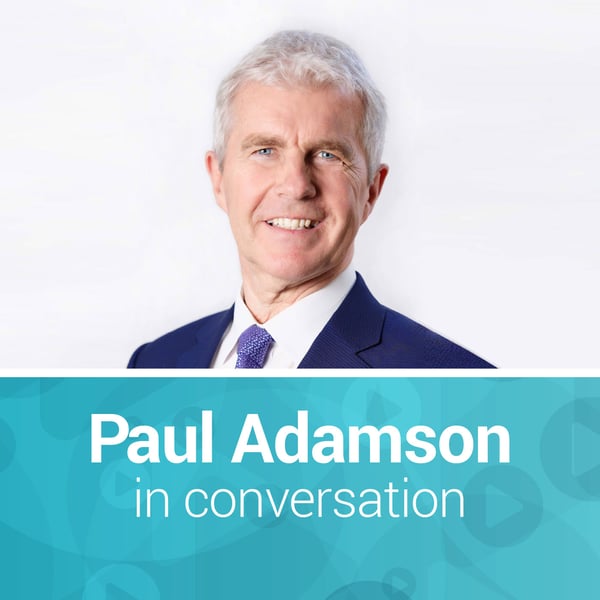Ireland's handling of Brexit
Paul Adamson in conversation
Paul Adamson
4.4 • 7 Ratings
🗓️ 27 February 2019
⏱️ 20 minutes
🧾️ Download transcript
Summary
Transcript
Click on a timestamp to play from that location
| 0:00.0 | Welcome to In Conversation, the regular podcast of E-Sharp magazine. Go to e-sharp.com. |
| 0:12.0 | For free access to all our podcasts to date. This is Paul Adamson, and I'm in conversation with Tony Connolly. |
| 0:17.8 | Tony Connolly is the Europe editor of RTE, the Irish broadcaster. Yes, Tony, |
| 0:22.0 | we are going to talk about Brexit, I promise you, but I'd rather start by not looking towards |
| 0:25.9 | the future, even the short-term future, but actually the past. As you chronicle in your book, |
| 0:30.8 | Brexit and Ireland, now in its second edition of May last year, the Irish government, before |
| 0:35.7 | Article 50 was triggered in March 2017, had this wind of |
| 0:40.3 | opportunity, if you like, or nine months of anxiety when they weren't quite sure what would happen |
| 0:45.3 | from their perspective and what extent the EU 26 would handle the upcoming Article 15 negotiations. |
| 0:51.3 | I mean, as you say in your book, but maybe it's been a bit of our listeners who haven't read your book. Tell us a bit about how the Irish government approached that |
| 0:57.9 | period between June 16 and March 17. It was a difficult period because the result was shocking |
| 1:06.6 | to the Irish government, but they had almost treated it as almost like a domestic referendum. |
| 1:12.6 | The government had put so many resources into following the campaign, and they had sent |
| 1:17.5 | ministers over to the UK to try and campaign as far as protocol permitted for a remain vote. And Dekeney, the T- the time was over quite a few times and he had got quite a good relationship with David Cameron but I think it gradually dawned on the Irish government very shortly before the referendum that this could go the wrong way from from their perspective so they they had done a fair amount of contingency planning, but I think |
| 1:49.4 | it's fair to say that their instinct the day after the referendum was to have a bilateral track |
| 1:56.2 | with the UK to try and figure out how this would be managed. |
| 2:01.6 | I suppose the government had prioritised the Irish peace process as the main collateral damage if there was a leave vote. |
| 2:09.6 | But they had looked at all of the implications for customs, for the agri-food industry, for energy. |
| 2:16.6 | So they had been scoping a lot of the issues, |
| 2:18.5 | and they had quite a detailed contingency plan in place. |
| 2:22.0 | But I think because of the very strong bilateral relations |
| 2:25.8 | between the two countries that had been at their zenith, |
... |
Please login to see the full transcript.
Disclaimer: The podcast and artwork embedded on this page are from Paul Adamson, and are the property of its owner and not affiliated with or endorsed by Tapesearch.
Generated transcripts are the property of Paul Adamson and are distributed freely under the Fair Use doctrine. Transcripts generated by Tapesearch are not guaranteed to be accurate.
Copyright © Tapesearch 2025.

